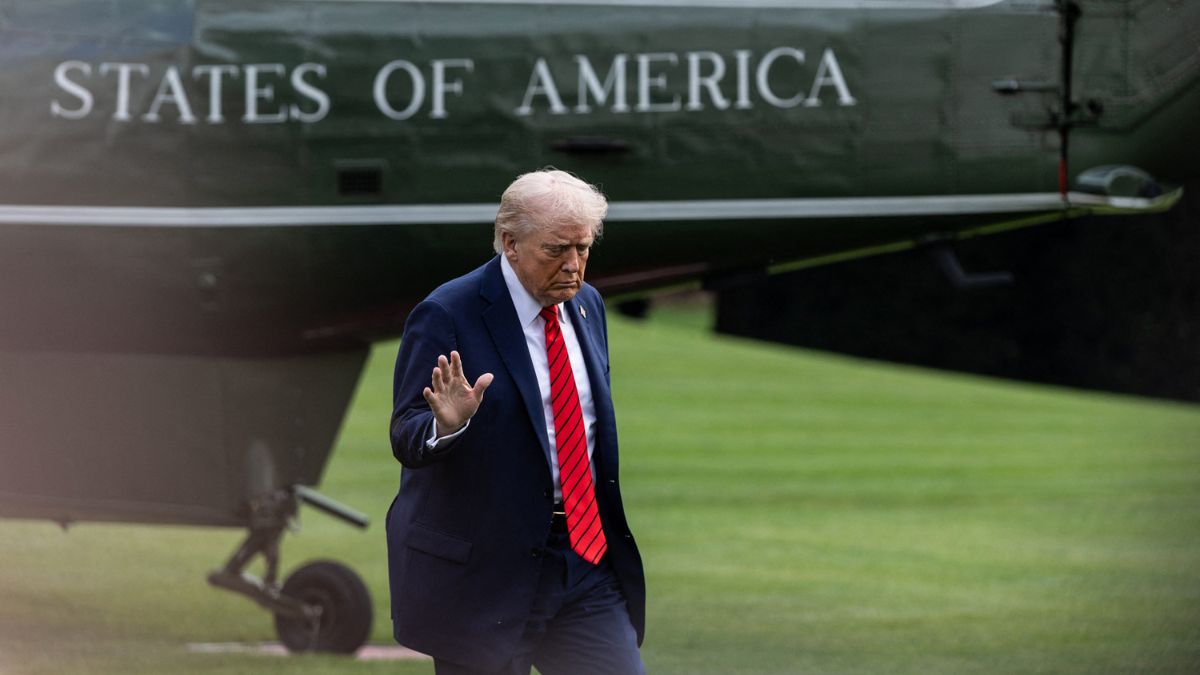For months, Dearborn resident Samra’a Luqman faced scorn from neighbours for backing Donald Trump, a Republican president many in her community viewed as unyieldingly pro-Israel. Now, after Trump helped broker a Gaza ceasefire, the lifelong Democrat-turned-Trump supporter says she feels vindicated.
“It’s almost an ‘I told you so’ moment,” says Luqman, a Yemeni American who helped rally Arab American support for Trump in Michigan during the 2024 election. “No other president would have been able to force Bibi to approve the ceasefire,” she adds, referring to Israeli Prime Minister Benjamin Netanyahu.
The ceasefire, announced earlier this month, marked the most significant step yet towards ending a devastating two-year conflict that Palestinian health officials say has claimed more than 67,000 lives in Gaza. It includes provisions for the release of the remaining 20 hostages captured by Hamas during the October 2023 attacks that killed over 1,200 people in Israel.
Guarded optimism amid deep mistrust
Luqman and other Arab American Trump supporters describe their relief as cautious. While many credit Trump for using his influence over Netanyahu to push for a truce, they remain sceptical that Israel will hold to its terms.
“We’re all holding our breath,” says Mike Hacham, a Lebanese American political consultant who campaigned for Trump in 2024. “I’ve got to give credit where it’s due … but this isn’t peace. It’s just the end of a bloody war — and those lives, Israeli and Palestinian, aren’t coming back.”
The mood among Michigan’s 300,000-strong Arab American community reflects a complex mix of hope, fatigue, and mistrust. Israel’s earlier airstrikes in Arab nations, including Qatar, have deepened resentment — even as the ceasefire offers a rare glimpse of calm.
Yet for many Arab Americans who voted for Trump, the ceasefire has not erased lingering anger over his domestic policies. His reimposed travel ban on several Muslim-majority nations and crackdowns on pro-Palestinian demonstrations have unsettled voters who once saw him as a potential peacemaker.
Impact Shorts
More ShortsA community caught between parties
Trump’s outreach to Arab Americans was pivotal to his narrow 2024 win in Michigan, where he overturned Joe Biden’s 2020 victory by more than 80,000 votes. A year before the election, an Arab American Institute poll showed Trump supported by 42% of Arab Americans nationwide — nearly matching Kamala Harris’s 41% — a stark decline from the Democratic advantage seen under Biden.
But that support remains fragile. Many Arab Americans interviewed by Reuters said their votes had not translated into greater representation in Trump’s administration. Others, like Hacham, warned that the community’s allegiance could shift swiftly if the ceasefire unravels.
“We’ve shown Donald Trump that we have the power to swing whichever way we want,” he says. “If this deal fails, we’re willing to move back to the Democrats.”
Luqman agrees that much depends on how Trump’s legacy on Gaza evolves. “I don’t think Arab Americans have found their political home with the Republicans just yet,” she says. “But if this ceasefire holds, it could solidify support for JD Vance and other Republicans in future elections.”
The limits of outreach
To contain growing discontent, Trump’s special envoy Richard Grenell — a Michigan native — has returned to the state to meet Arab American and Muslim leaders. His goal: to calm frustration over the travel ban, arms sales to Israel, and the perception that Arab Americans are politically sidelined.
“I continue to believe that the Arab and Muslim communities in Michigan are the key to winning the state,” Grenell told Reuters, pledging ongoing dialogue. “You can’t show up right before an election and expect to be a credible voice for any community.”
Despite his assurances, mistrust remains. Imam Belal Alzuhairi, a Yemeni American cleric who once stood beside Trump on stage, says many in his community feel betrayed. “A lot of people are upset and fearful for their families,” he says. “There’s a deep mistrust after the travel ban.”
Alzuhairi, disillusioned by the political back-and-forth, now plans to withdraw from public campaigning altogether. “Politics has become soul-consuming,” he says quietly. “For now, I’ll focus on faith and family.”
For Arab Americans in Michigan, the Gaza ceasefire represents both a validation of their political gamble and a reminder of how precarious their trust remains. As one Dearborn resident put it, “Trump may have stopped a war — but whether he can win back hearts is another question altogether.”
)